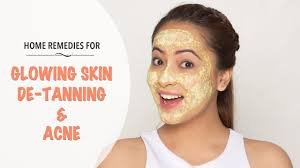Introduction
Skin Treatment is the largest organ of the body, it serves an important purpose defending against infection, regulates the body temperature and offers sensory functions. But external factors like pollution, stress, poor diet and harsh weather can affect skin health, leading to a variety of skin irritations, including acne, dry skin, eczema and ageing. Adequate treatment of the skin is a prerequisite for it to remain healthy and illuminated.
Here is a Superman-Guide to the best methods for your skin treatment as well as medical, natural and preventive treatments that will help you get the flawless complexion you want.
Table of Contents
Common Skin Problems & Their Causes
Before selecting a Skin treatment оно is vital to determine the cause of the skin issues. Here are some common skin problems:
- Acne & Pimples – Due to clogged pores, excess oil, bacteria or hormonal imbalances.
- Dryness & Dehydration – No moisture, extreme weather, or overuse of chemical products.
- Hyperpigmentation & Dark Spots – Caused by exposure to the sun, acne marks & hormonal changes.
- Eczema & Psoriasis – Autoimmune or allergy responses triggering inflammation and flake skin.
Understanding these conditions helps in selecting the right skin treatment approach.
Medical Skin Treatments
Many Skin Treatment conditions can be effectively treated with medical interventions. Here are a few career options:
1. Topical Medications
- Retinoids (e.g., Tretinoin) – Help with acne and wrinkles by increasing cell turnover
- Hydroquinone – Fades dark spots and hyperpigmentation.
- Antibiotic Creams (e.g. Clindamycin) – Combat bacterial acne.
- Corticosteroids – For eczema and psoriasis; to reduce inflammation
2. Oral Medications
- Antibiotics (Doxycycline, Minocycline) – Used for severe acne.
- Antihistamines – Aid allergic skin reactions.
- Accutane (Isotretinoin) – An aggressive form of acne treatment for those resistant
3. Dermatological Procedures
- Chemical Peels – Exfoliate the dead skin cells so as to enhance texture and tone.
- Laser treatment – Good for scars, pigmentation and wrinkles.
- Microdermabrasion – Exfoliantes a pele para uma aparência mais suave.
- Botox & Fillers – Smooth out the wrinkles and add volume.
These procedures should always be done by a licensed dermatologist.
Natural & Home Remedies For Skin Care
Natural remedies are highly effective for treating mild skin issues or as an additional to medical treatment.
1. Aloe Vera
- Calms sunburn, acne, and dry skin.
- Rich in anti-inflammatory and healing properties.
2. Honey & Turmeric Mask
- Honey is antibacterial, turmeric reduces pigmentation.
- Combine with yogurt for extra hydration.
3. Tea Tree Oil
- An acne treatment natural antiseptic
- It must be diluted with carrier oil before applying
4. Coconut Oil
- Deeply moisturizes dry skin.
- Good for eczema and dermatitis.
5. Green Tea Extract
- For use on red, inflamed skin, pale extracts of tannins.
- What you can use it for: As a toner or drink
These remedies are gentle and suitable for most skin types but should be patch-tested first.
Preventive Skin Care Tips
Aid is better than cure — and a good round-up aid can often help prevent serious illness. These tips will help for skin health in the long run:
1.Cleansing & Moisturizing Twice A Day
- Start by washing with a mild cleanser to eliminate dirt and oil.’
- Moisturize: This helps keep you hydrated
2. Sun Protection
- Daily use of sunscreen (SPF 30+) to prevent UV damage.
- A hat and sunglasses can help protect you further.
3. Healthy Diet & Hydration
- Maintain skin hydration by drinking lots of water.
- Eat foods rich in antioxidants (berries, nuts, leafy greens).
4. Avoid Harsh Chemicals
- This means you should avoid fragrance-filled, overly strong skincare products.
- Exfoliate only two to three times a week.
5. Manage Stress & Sleep Well
- Stress causes acne and early aging.
- They should be getting 7-8 hours of sleep in order to enable skin repair and restoration.
When to See a Dermatologist?
Although many skin problems can be treated at home, see a dermatologist if you have:
- Severe acne that’s not getting better with OTC treatments.
- Chronic rashes, redness, or itch.
- The appearance of unusual moles or skin growths.
- Sudden skin discoloration
Early medical intervention can prevent complications.
Conclusion
However, it takes a lot more than just medical help, home remedies, and protection to have healthy skin. From acne to dryness to aging, the right skin treatment can help restore your skin’s natural glow. Always adjust your skincare to suit your skin type and see your dermatologist if problems persist.
With a consistent skincare regime and shielding your skin from environmental factors, you can keep a glowing, youthful skin for years to come.
Review Score
-
Performance
-
Design
-
Flexibility
-
Durability







Leave a Comment